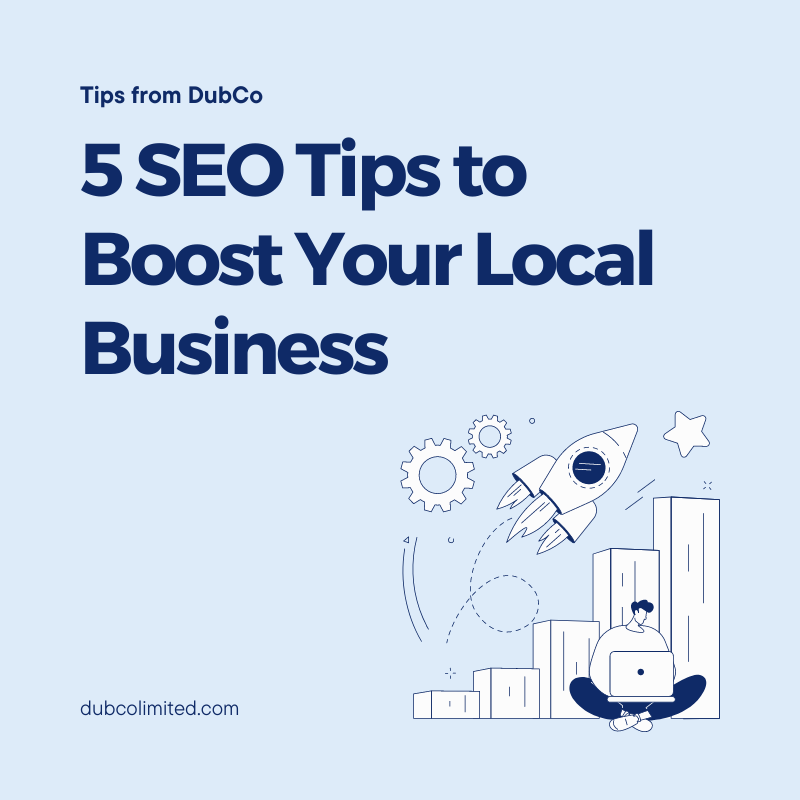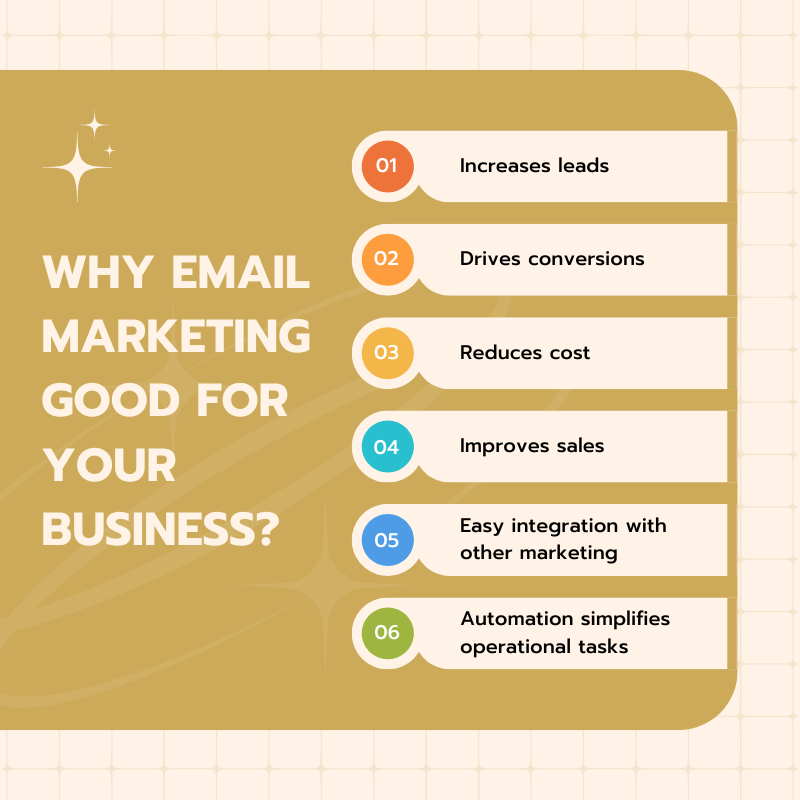5 SEO Tips to Boost Your Local Business
Unlock the Power of Local SEO: Proven Strategies to Increase Your Business's Online Visibility and Attract More Customers.

As a local business owner, you understand how crucial it is to stand out in your community. However, with more consumers turning to search engines to find local products and services, ensuring your business appears at the top of search results is more important than ever. Effective local SEO can make the difference between your business thriving or getting lost in the competition. In this article, we’ll explore five actionable SEO tips that will help boost your local business’s online visibility and attract more customers.
1. Optimize Your Google My Business Profile
Google My Business (GMB) is one of the most powerful tools for local SEO. When someone searches for your business or related services in your area, your GMB profile is likely the first thing they see. Optimizing this profile is crucial to make a great first impression.
Steps to Optimize Your GMB Profile:
- Claim and Verify: If you haven’t already, claim and verify your Google My Business listing. This step is essential for gaining control over your business’s online presence.
- Complete Your Profile: Ensure all your business information is accurate and up-to-date. This includes your business name, address, phone number (NAP), hours of operation, and website URL.
- Add High-Quality Images: Upload professional photos of your business, products, and services. Visual content can significantly impact a customer’s decision to visit your business.
- Encourage Reviews: Positive reviews are a strong signal to both potential customers and Google that your business is trustworthy. Encourage satisfied customers to leave reviews on your GMB profile.
SEO Benefit: A fully optimized GMB profile can significantly improve your business’s visibility in local search results and Google Maps, making it easier for customers to find and choose your services.
2. Focus on Local Keywords
Keywords are the foundation of any successful SEO strategy. However, when it comes to local SEO, it’s essential to target keywords that reflect local intent. These are the search terms that potential customers in your area are using to find services like yours.
Steps to Target Local Keywords:
- Conduct Keyword Research: Use tools like Google Keyword Planner or Ahrefs to identify keywords related to your business that include your location (e.g., “plumber in Austin” or “best coffee shop in San Francisco”).
- Integrate Keywords: Once you have a list of local keywords, integrate them naturally into your website content, including blog posts, service pages, meta tags, and image alt text.
- Utilize Long-Tail Keywords: Long-tail keywords are more specific search phrases that often include the name of your town or neighborhood (e.g., “affordable SEO services in Brooklyn”). These can be easier to rank for and attract highly targeted traffic.
SEO Benefit: By focusing on local keywords, you’ll improve your chances of appearing in front of people who are actively searching for services in your area, driving more qualified traffic to your website.
3. Build Local Citations and Backlinks
Citations and backlinks are essential components of local SEO. Citations are online mentions of your business’s NAP information, while backlinks are links from other websites to yours. Both of these elements help establish your business’s authority and credibility in the eyes of search engines.
Steps to Build Local Citations and Backlinks:
- List Your Business on Local Directories: Ensure your business is listed on popular local directories like Yelp, Yellow Pages, and industry-specific sites. Consistency in your NAP information across these platforms is key.
- Partner with Local Businesses: Collaborate with other local businesses or community organizations to build relationships that can lead to backlink opportunities. For example, you might write a guest blog post for a local partner’s website.
- Monitor Your Citations: Use tools like Moz Local or BrightLocal to monitor your citations and ensure they are consistent and accurate across the web.
SEO Benefit: Building local citations and backlinks strengthens your website’s authority, helping it rank higher in local search results and improving overall visibility.
4. Optimize for Mobile and Voice Search
With more people using mobile devices and voice assistants like Siri and Alexa to search for local businesses, optimizing your website for mobile and voice search is essential.
Steps to Optimize for Mobile and Voice Search:
- Ensure Mobile-Friendliness: Use Google’s Mobile-Friendly Test tool to check if your website is mobile-friendly. Make sure it loads quickly, has a responsive design, and is easy to navigate on a small screen.
- Optimize Content for Voice Search: Voice search queries are often longer and more conversational. Optimize your content by incorporating natural language and question-based phrases (e.g., “Where can I find a good pizza place near me?”).
- Implement Schema Markup: Schema markup helps search engines understand the content on your site. Use local business schema to provide search engines with detailed information about your business.
SEO Benefit: Optimizing for mobile and voice search ensures that your business can capture a growing segment of local searchers who prefer using their phones or voice assistants, leading to more local traffic and potential customers.
5. Leverage Online Reviews and Reputation Management
Online reviews are a critical factor in local SEO. They not only influence potential customers but also affect your ranking in local search results. Managing your online reputation effectively can lead to more positive reviews and improved visibility.
Steps to Leverage Online Reviews:
- Encourage Reviews: Ask your customers to leave reviews on Google, Yelp, and other relevant platforms. Make it easy by providing direct links to your review profiles.
- Respond to Reviews: Whether a review is positive or negative, always respond promptly and professionally. Thank customers for positive reviews, and address any issues raised in negative reviews with a solution-oriented approach.
- Monitor Your Reputation: Use tools like Google Alerts or Reputation.com to monitor what people are saying about your business online. Stay proactive in managing your reputation.
SEO Benefit: Positive reviews and active reputation management boost your business’s credibility, leading to higher rankings in local search results and increased customer trust.
Conclusion
Local SEO is a powerful tool for small businesses looking to stand out in their communities. By optimizing your Google My Business profile, focusing on local keywords, building citations and backlinks, optimizing for mobile and voice search, and leveraging online reviews, you can significantly improve your local search rankings and attract more customers. Start implementing these tips today, and watch your local business thrive online.
Insights & Resources
a b c d e f g h i j k l m n o - Do not remove from template!!! it is important to support different fonts

All Rights Reserved | DubCo LLC


